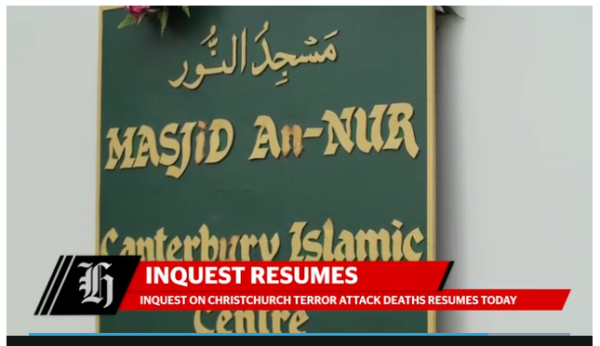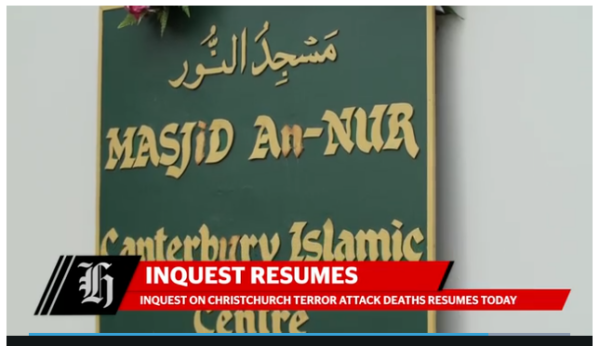There was much more information about the locked door at Al Noor available online in the days after the shooting, however this has all been scrubbed from the internet sites, news reports and social media. From memory this included details of the trades vehicle being at the scene on the day. It is not expected that anyone will be any wiser as to what or why the locked door at Al Noor was not operational by the end of this inquest.
The actions of the medical and hospital staff were never under any question by those investigating events in Christchurch or from a distance, nor to our knowledge by any international media.
This from NZ herald regarding today’s investigation of the locked door at Al Noor:

The deputy chief coroner will further examine why an emergency exit door at Christchurch’s Al Noor Mosque did not open during the 2019 terror attacks.
Expert witnesses will be called to give evidence at the week-long hearing.
The door and legislation surrounding its installation was the sole focus of a hearing in May, when survivors and police said the door – which was controlled by a mechanical and an electromagnetic lock – did not open during the March 15 shooting.
Al Noor worshippers Mohammad Siddiqui and Ahmad Alayedy said they kicked out the door’s bottom glass pane and crawled out instead.
Coroner Brigitte Windley is examining 10 issues as part of the inquest’s first phase, with the bulk of evidence heard over seven weeks late last year.
The issues include:
- The events of March 15, 2019, from when the attack began until the terrorist’s formal interview by police;
- The response times and entry processes of police and ambulance officers at both mosques;
- The triage and medical response at each mosque;
- The steps that were taken to apprehend the offender;
- The role of, and processes undertaken by, Christchurch Hospital in responding to the attack;
- Co-ordination between emergency services and first responders;
- Whether the terrorist had any assistance from any other person on March 15, 2019;
- The cause of death for each of the victims and whether any deaths could have been avoided;
- The final movements and time of death for the deceased (if raised by immediate family, and to the extent they could be proven).
Coroner Windley told the court the hearing was designed to shift the country’s understanding of the events of March 15 from “darkness to light”.
“The evidence we’ve heard in this inquest is vital to fully understanding the circumstances of the deaths, in so far as the actions or inactions of the emergency response agencies and their staff on March 15, 2019 are relevant.
“Only with that understanding is it possible to consider if the response and the inevitable care gap could be improved in the future, despite our strongest desire that a response to such an attack will never again be needed on our shores,” she said.
The inquiry will later consider a further three issues: the police firearms licensing process; the terrorist’s online activities; and the community’s ability to detect and respond to violent extremism.
The firearms licensing issue will be considered in a hearing set down for October.
On Friday the Government announced that it would not implement eight of the 44 recommendations of the Royal Commission of Inquiry into the March 15 terror attacks.
The Federation of Islamic Associations urged the Government to revisit its decision to wind up work on the commission’s response, while Labour accused the coalition of walking away from the Prime Minister’s commitment to victims and survivors.

